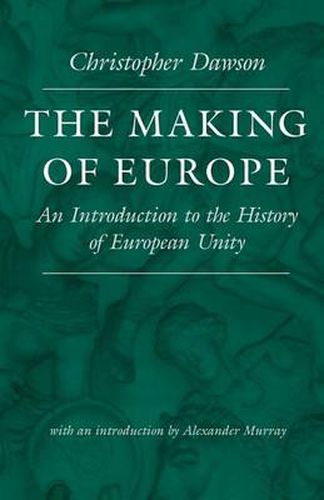Readings Newsletter
Become a Readings Member to make your shopping experience even easier.
Sign in or sign up for free!
You’re not far away from qualifying for FREE standard shipping within Australia
You’ve qualified for FREE standard shipping within Australia
The cart is loading…






In this work, Christopher Dawson concludes that the period of the 4th to the 11th centuries, commonly known as the Dark Ages, was not a barren prelude to the creative energy of the mediaeval world. Instead, he argues that it is better described as
ages of dawn , for it was in this rich and confused period that the complex and creative interaction of the Roman Empire, the Christian Church, the classical tradition and barbarous societies provided the foundation for a vital, unified European culture. In an age of fragmentation and the emergence of new nationalist forces, Dawson argued that if
our civilization is to survive, it is essential that it should develop a common European consciousness and sense of historic and organic unity . But he was clear that this unity required sources deeper and more complex than the political and economic movements on which so many had come to depend, and he insisted, prophetically, that Europe would need to recover its Christian roots if it was to survive.
$9.00 standard shipping within Australia
FREE standard shipping within Australia for orders over $100.00
Express & International shipping calculated at checkout
In this work, Christopher Dawson concludes that the period of the 4th to the 11th centuries, commonly known as the Dark Ages, was not a barren prelude to the creative energy of the mediaeval world. Instead, he argues that it is better described as
ages of dawn , for it was in this rich and confused period that the complex and creative interaction of the Roman Empire, the Christian Church, the classical tradition and barbarous societies provided the foundation for a vital, unified European culture. In an age of fragmentation and the emergence of new nationalist forces, Dawson argued that if
our civilization is to survive, it is essential that it should develop a common European consciousness and sense of historic and organic unity . But he was clear that this unity required sources deeper and more complex than the political and economic movements on which so many had come to depend, and he insisted, prophetically, that Europe would need to recover its Christian roots if it was to survive.